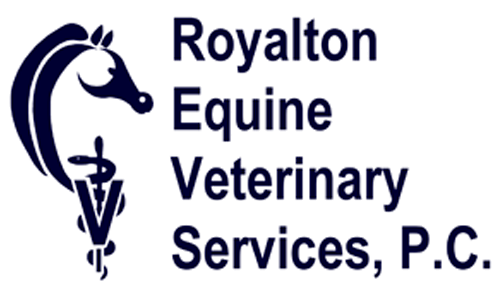Every Horse Needs Dental Care…Including Yours
Like humans horses also require dental care to maintain overall health
Retaining the services of an experienced veterinarian will help in your efforts to ensure a healthy animal. Those of who have chosen me to take care of your horse’s dental care know that there is much more involved in the whole process of “floating teeth” than just running a rasp over the dental arcades.
Experienced practitioners use a speculum in place to examine your horse’s mouth. Although some horses may require sedation if they are nervous, or if their mouth is very sore, it is extremely important to examine every tooth in the mouth. Simply pulling the tongue aside, is not going to allow for a complete exam.
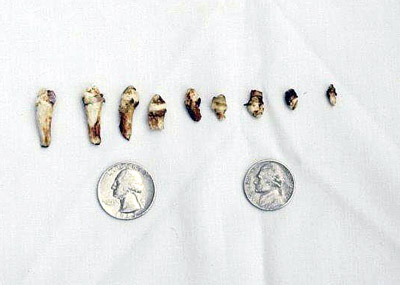
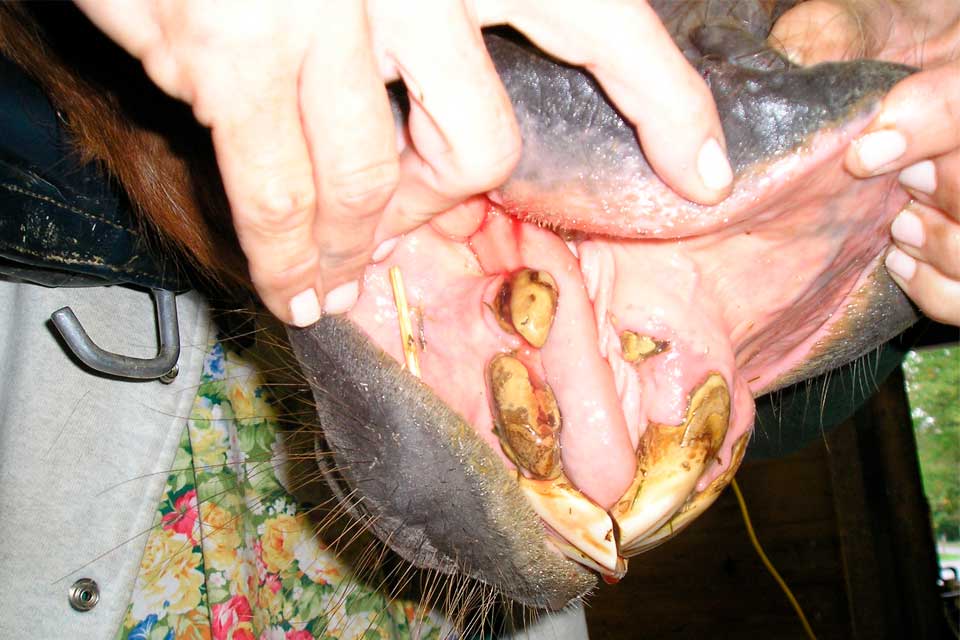
Clients realize that the whole horse is evaluated and treated on an individual basis in this practice. Records are maintained to monitor: cardiovascular health; vaccination status; the need for and response to medications including sedatives, anti-inflammatory and for some, antibiotics; fluctuations in weight and provide nutritional counseling.
Regular clients have realized that the scope of equine dentistry does go far beyond the realm of the “lay dentist”(unlicensed, non-veterinarian) and requires medical expertise to address the many health issues that relate to good dental care.
Frequently, I am asked, “At what age do horses benefit from good dental care?” The answer is all ages, for at each stage in his life, the horse has different needs and requirements for good oral health. Weanlings and yearlings should be examined for proper dentition and bite alignment for proper growth and development.
Two and three year olds benefit from wolf tooth removal, removal of retained deciduous teeth (caps) when appropriate and performance floating.
These procedures will minimize resistance and maximize positive training experiences. Four and five year olds also benefit from performance floating and cap removal if and when necessary as their training progresses.
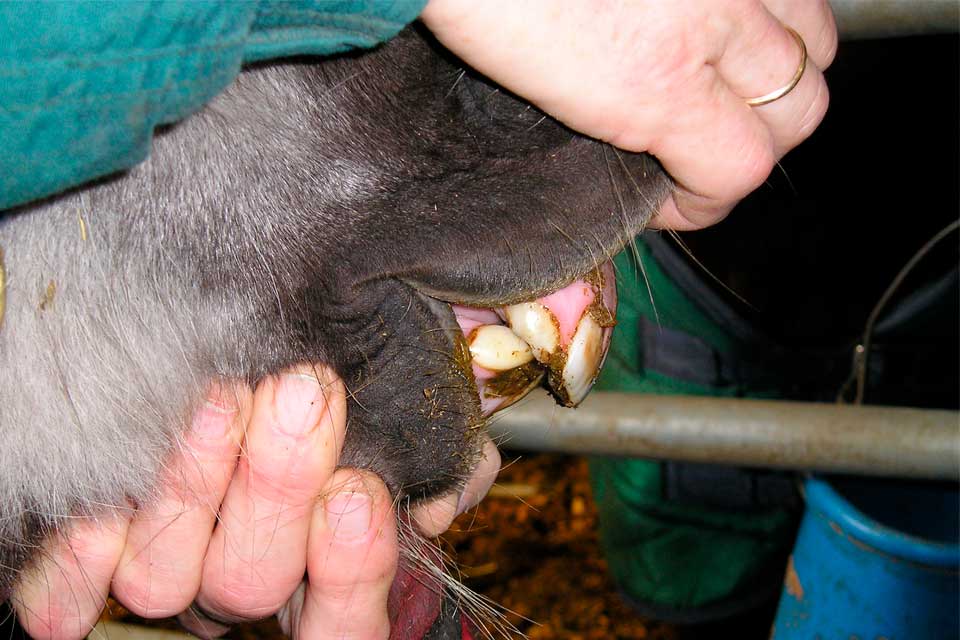
Clients are always surprised by the different sizes and shapes that may be seen in wolf teeth.
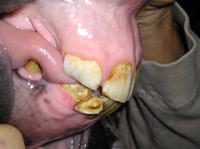
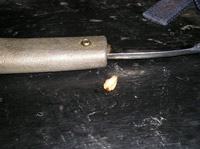
Did you know that by the time your horse turns five, he has lost 12 deciduous (“baby”) incisors and has 12 permanents come in; he has lost 12 deciduous premolars and these have been replaced by permanent teeth and he has had 12 permanent molars erupt! Some will also have or be in the process of getting four canine teeth.
Here is an example of a retained deciduous tooth (an incisor) in a young horse.
The adult tooth failed to displace this tooth and an extraction was preformed to allow the teeth to move in to their normal position.
Adult horses benefit from routine maintenance, care and evaluation for best performance and to prevent future problems. The geriatric horse is of special concern.
Annual or semi-annual care may be advised, depending on the individual. Instrumentation should be chosen carefully to avoid injury. These animals are excellent candidates for the motorized floats as they can be less problematic for old, short-rooted teeth.
Tooth crown should be preserved as much as possible. “Over floating” the teeth can occur at any age and it has its own dire consequences the worst being the inability to eat due to loss of grinding surface.
There can be “too much of a good thing!” Good judgment is extremely valuable in guarding your horse’s health.
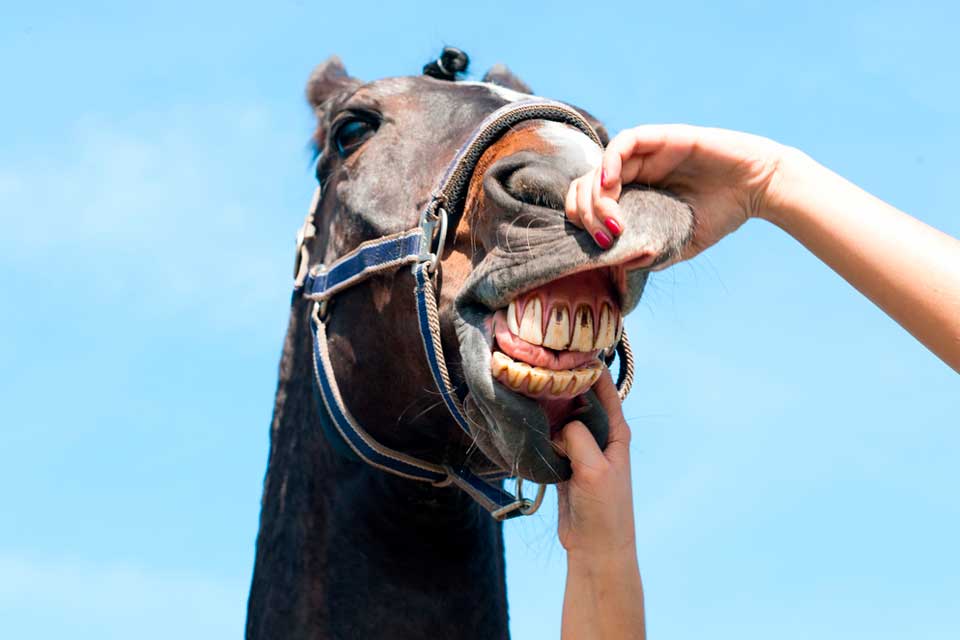
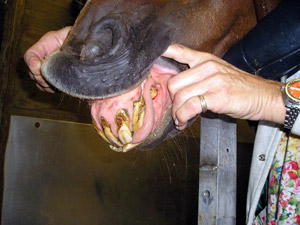
A condition we are seeing more frequently in our aging equines: Equine Odontoclastic Tooth Resorption and Hypercementosis. Lots of calculus, weakening of tooth roots, teeth may loosen and come out or require extraction.
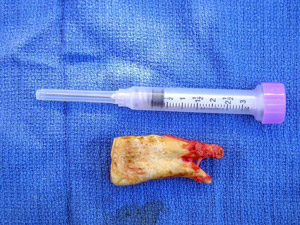
This molar was extracted from an elderly thoroughbred. It was loose, decayed and causing chewing problems.
Avoid the consequences of poor oral hygiene including resistance, weight loss, choke and colic – schedule your horse’s regular dental care every year. You’ll be glad you did. I know your horse will be glad too!
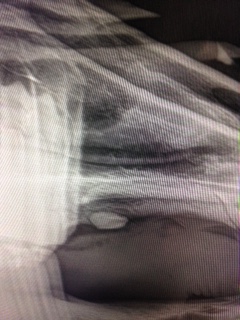
If you can’t decide whether your horse needs dental care, call Royalton Equine Veterinary Services at (716) 629-8384. for more information.
More articles about Dental Care for Your Horse:
Maintaining Your Horse’s Well-Being with a Healthy Mouth
Signs That Your Horse Needs Dental Care
Top Ten Reasons Your Horse Needs Regular Dental Care
Regular Examinations Are Critical
Is Sedation a Necessary Measure?
Learn to Recognize your Horse’s Dental Problems
